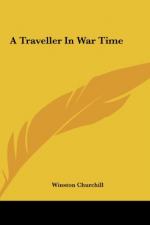We lunched at one of the little inns that for generations have been tucked away in the narrow streets of provincial towns; this time a Cheval Blanc, with an unimposing front and a blaze of sunshine in its heart. After a dejeuner fit for the most exacting of bon viveurs we sat in that courtyard and smoked, while an ancient waiter served us with coffee that dripped through silver percolators into our glasses. The tourists have fled. “If happily you should come again, monsieur,” said madame, as she led me with pardonable pride through her immaculate bedrooms and salons with wavy floors. And I dwelt upon a future holiday there, on the joys of sharing with a friend that historic place. The next afternoon I lingered in another town, built on a little hill ringed about with ancient walls, from whose battlements tide-veined marshes stretched away to a gleaming sea. A figure flitting through the cobbled streets, a woman in black who sat sewing, sewing in a window, only served to heighten the impression of emptiness, to give birth to the odd fancy that some alchemic quality in the honeyed sunlight now steeping it must have preserved the place through the ages. But in the white close surrounding the church were signs that life still persisted. A peasant was drawing water at the pump, and the handle made a noise; a priest chatted with three French ladies who had come over from a neighbouring seaside resort. And then a woman in deep mourning emerged from a tiny shop and took her bicycle from against the wall and spoke to me.
“Vous etes Americain, monsieur?”
I acknowledged it.
“Vous venez nous sauver”—the same question I had heard on the lips of the workman in the night. “I hope so, madame,” I replied, and would have added, “We come also to save ourselves.” She looked at me with sad, questioning eyes, and I knew that for her—and alas for many like her—we were too late. When she had mounted her wheel and ridden away I bought a ‘Matin’ and sat down on a doorstep to read about Kerensky and the Russian Revolution. The thing seemed incredible here—war seemed incredible, and yet its tentacles had reached out to this peaceful Old World spot and taken a heavy toll. Once more I sought the ramparts, only to be reminded by those crumbling, machicolated ruins that I was in a war-ridden land. Few generations had escaped the pestilence.
At no great distance lay the little city which had been handed over to us by the French Government for a naval base, one of the ports where our troops and supplies are landed. Those who know provincial France will visualize its narrow streets and reticent shops, its grey-white and ecru houses all more or less of the same design, with long French windows guarded by ornamental balconies of cast iron—a city that has never experienced such a thing as a real-estate boom. Imagine, against such a background, the bewildering effect of the dynamic presence of a few regiments of our new army! It is a curious




